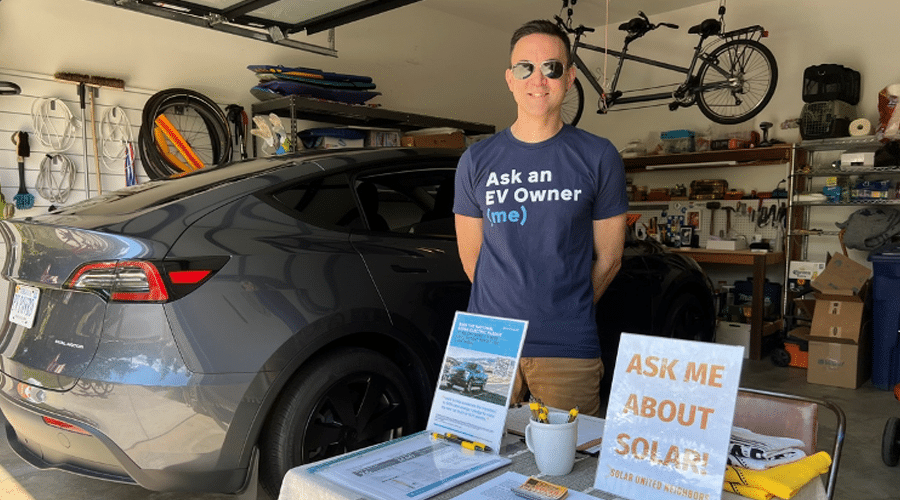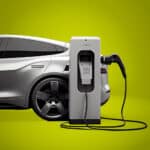High-Impact Clean Energy Actions
How to Make Your Energy Matter
Some climate actions make a bigger impact than others. Here are steps individuals can take today to reduce climate-harming emissions.
First, keep in mind:
- Start with one action. It’s easy to get overwhelmed and do nothing!
- Most people want to take climate action too. Studies show the majority of Americans (78%) want action on climate, yet people dramatically underestimate how many others feel the same way.
- You have more influence than you realize. Talking about climate and showing others you are taking action motivates those around you to take action. Start with your personal network — tell them what steps you’re taking.

Influence Your Networks and Advocate
- Influence your networks. Help your workplace, book club, neighbors, family, or place of worship go green (share this list with them!)
- Vote and campaign for clean energy candidates and policies.
- Attend a local energy board public meeting – state regulatory boards are powerful and decide how, when, and where clean energy projects are built in your state. Oil and gas interests have deep influence with many of the boards. Their meetings are open to the public and they need to hear from residents pushing for local clean energy solutions. Learn more, start attending, and bring friends.

Part-time State Organizer Positions
Apply to be a clean energy organizer in your state – and get paid. Create a plan to educate, engage, and inspire action in your community. Bring others together, host virtual or online events, and create a community of people taking clean energy actions where you live. Volunteer organizers will spend 50-60 hours over 4-6 months organizing and educating others in their state and receive a stipend of $1000-1500. Organizers will deliver a plan, share photos/videos, collect stories, speak at events, share information and connect others to actions. Applications from organizers in the following states will be prioritized – NC, PA, and VA.

Host an Event in Your Home or Community
Generation180 is providing micro-grants ranging from $50-250 for volunteers who organize an event where you share your clean energy actions with your neighbors, community, co-workers, and friends! Have you electrified your home, your vehicle, or your community? Tell others how you did it and if you received incentives or rebates for it. Events might include: a home energy tour, EV ride and drive, presentation at work, community events or centers, in your neighborhood, school, place of worship, etc. You could also organize a panel with others or table at a market or conference. Have your own idea – go for it. We’ll reimburse you for event expenses like food/beverages, tabling fees, materials, transportation, etc. Ideally each event will reach at least 20+ individuals and provide participants with info and an action to take. Funding is available through 2024, or until we run out. Apply today and get started organizing your event!
Fix Food
- Eat more plants and grains, and reduce your meat consumption. Meat production makes up about half of the climate-harming carbon emissions in our food system.
- Reduce your food waste or compost. Reducing organic waste daily can cut your emissions in half.
- Start an herb or vegetable garden, or plant trees and pollinator-friendly plants, and identify how you can eat foods grown closer to home.


Electrify Your Life
- Install solar panels and cut home climate-harming emissions.
- Buy or lease a new or used electric vehicle. EVs produce zero pollution, are fun to drive, and save you money over time.
- Replace old appliances with energy-efficient ones: Electric or induction stove, heat pump, electric lawn mower, electric clothes dryer, or an electric panel.
- Learn more ways to take action from our Electrify Your Life program.
Green your money
- Switch to a green bank or credit card, such as Aspiration, ATMOS, or Ando. The world’s 60 largest banks lend trillions of dollars to the fossil fuel industry.
- Similarly, you can stop funding fossil fuels with your investments (401k, IRA, credit card).
- Pressure your university/alma mater to divest, getting rid of stocks or bonds that support oil and gas companies.















